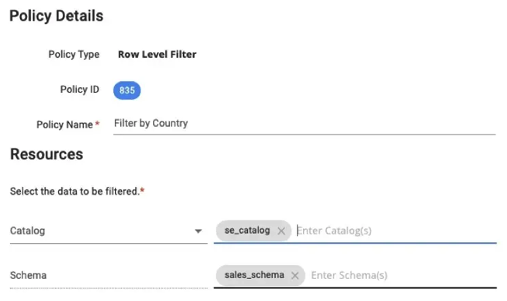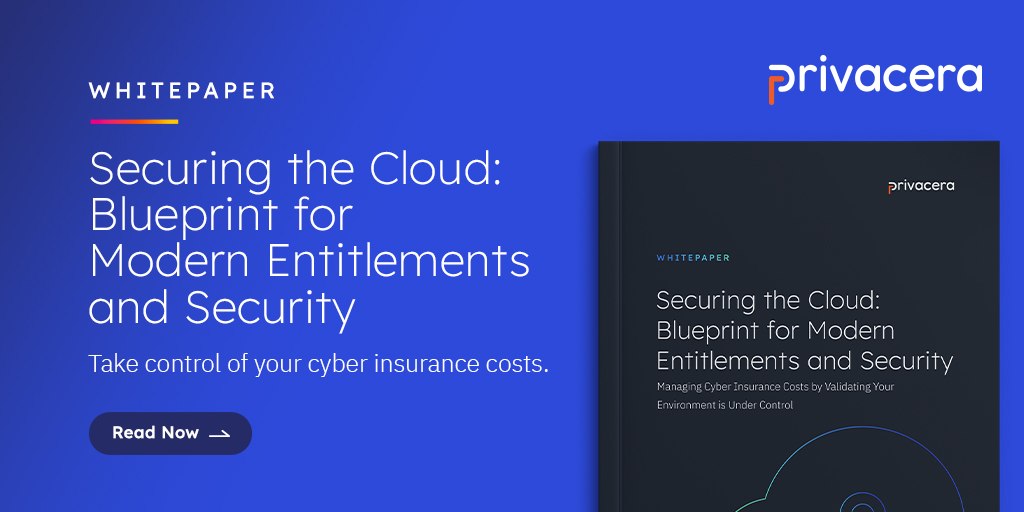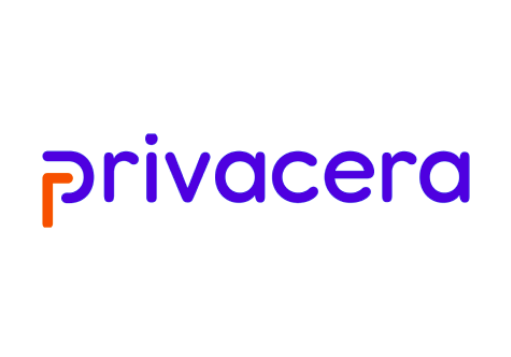You need Privacera with Unity Catalog
The combination of Databricks and Privacera brings the best of analytics and governance. Together, they deliver a comprehensive solution to address the governance and security challenges faced by enterprises and mid-sized businesses alike.
Privacera’s Data Security Governance Platform with Databricks empowers teams to centrally manage access and privacy – without sacrificing performance. With broad native support for structured and semi-structured data, it’s built on open standards and trusted by Fortune 500 leaders across industries.
Key Challenges in Data Governance and Security with Databricks Unity Catalog Only Solutions
1. Access Control & Security
Databricks’ native solution relies on Role-Based Access Control (RBAC)*. This is problematic and labor intensive in a large environment because you have to manage changes at policy level with Privacera working in conjunction with Databricks Unity Catalog, lets you manage at attribute level of the users using Attribute-Based Access Control (ABAC), Tag-Based Access Control (TBAC), Dynamic Data Masking, and/or Encryption and doesn’t require you to change policies every time a User’s attribute changes.
PRIVACERA GUI INTERFACE TO UNITY CATALOG

UNITY CATALOG COMMAND LINE

2. Management
Fine granular control using native authorization capabilities is not easy on Unity Catalog. This requires custom-code controls for each system – diverting valuable technical resources. In addition, ensuring uniform controls across all databases and datasets can be problematic because you need to create column masking and/or rowing filtering functions yourself. Add scale to this, where you have many columns, users, and groups combinations, and it becomes a daunting task. On the contrary, Privacera works in conjunction with Unity Controls and assists you with the column masking and/or rowing filtering behind the scene – giving you consistent experience across systems without the need for custom-code controls.
UNITY CATALOG COMMAND LINE

PRIVACERA GUI INTERFACE TO UNITY CATALOG

3. Compliance & Audit
Unity Catalog provides audit logging capabilities, but organizations need to process the raw audit logs that are in JSON to extract meaningful insights. This requires skilled resources and it is time-coming. Furthermore, it lacks the capability to have a centralized auditing, monitoring, and compliance management (GDPR, CCPA, HIPAA) across multiple cloud platforms. With Privacera you can easily look at the dashboard and quickly understand who has access to what dataset, and what and when changes were done by whom.
PRIVACERA GUI INTERFACE TO UNITY CATALOG

UNITY CATALOG GUI

4. Performance
Unity Catalog experiences performance issues when dealing with tables that have 100+ columns, especially when many of those columns (10+) contain sensitive data. To get fine-grained access, you have to implement Native Column-level Masking. Native column masking in Unity Catalog can cause slow queries. This is because Native Column-level Masking policies in Unity Catalog are implemented as functions. The more functions you have to execute within the compute cluster, the higher the computational load, which can lead to slower performance.
Privacera’s Unity Catalog connector addresses this issue by managing column masking through views instead of functions. Using views for column masking is more efficient, especially when dealing with wide tables (i.e., tables with many columns) and a large number of columns that need to be masked. While using views can be complex when dealing with numerous columns, Privacera takes the complexity out of managing these views, making them easy to use without compromising on performance.
5. Interface
When using Unity Catalog, you’re limited to learning its specific interface. In contrast, with Privacera, you can seamlessly work across both Unity and Snowflake without needing to learn a new tool. The look and feel remain consistent, as Privacera provides an abstraction layer for governance. This allows for a unified experience.
With Privacera, you get an easy-to-use interface for creating policies. Unlike Databricks only solution, where you have to manually create grants and policies, Privacera with Databricks Unity Catalog simplifies this process. Additionally, your Data Governance and IT teams can write automation scripts and API calls directly within Databricks, streamlining operations.
6. Migration (ONLY for Ranger)
Privacera can help onboard existing policies from the Ranger (Cloudera or Hortonwork) platform into Privacera. In Unity Catalog you have to re-rewrite script and keep on maintaining the script.
7. Vendor lock-in
Unity Catalog might be offered at no cost, it confines users exclusively to the Databricks ecosystem, limiting their options and long-term adaptability. Privacera offers unparalleled flexibility by integrating seamlessly with diverse systems, enabling organizations to avoid vendor lock-in.
8. Scope & Coverage
Unity Catalog is native to Databricks and doesn’t provide enterprise-wide data security across multiple platforms, including AWS, Azure, Snowflake, and on-prem environments. With Privacera, you are able to get support for multiple platforms.
Privacera with Unity Catalog vs Databricks Unity Catalog (UC) Only
| Overview | Databricks Unity Catalog (UC) Only | Privacera with Unity Catalog |
|---|---|---|
| Primary Function | Data governance and access control for Databricks environments | Enterprise-wide data security, access governance, and compliance across multiple platforms |
| Scope | Native to Databricks (Lakehouse) | Works across Databricks, AWS, Azure, Snowflake, BigQuery, Hive, Presto, and more |
| Target Users | Organizations using Databricks as their primary data platform | Enterprises requiring unified data security across multiple cloud and on-prem environments |
| Capabilities | Databricks Unity Catalog (UC) Only | Privacera with Unity Catalog |
| Access Control Model | Role-Based Access Control (RBAC) | Attribute-Based Access Control (ABAC), Tag-Based Access Control (TBAC), RBAC |
| Data Discovery & Classification | Limited (only within Databricks workspace) | Automated data discovery, classification, and tagging across multiple sources |
| Policy Enforcement | Fine-grained access at table/column level within Databricks | Fine-grained multi-platform access across Databricks, Snowflake, AWS, Azure, GCP, and on-prem systems |
| Column Level Access | Not native; it requires scripting to mask columns that shouldn’t be accessible | Connectors automate the masking, without requiring scripting |
| Data Masking | Basic column-level masking through scripts | Dynamic data masking |
| Single point of Management for mix environment | No (limited to Databricks Lakehouse) | Yes (covers Databricks, Snowflake, Hive, Presto, S3, ADLS, BigQuery, etc.) |
| Uniform controls across all databases and datasets | Only within Databricks (Lakehouse) | Multi-cloud & hybrid environments (AWS, Azure, GCP, on-prem) |
| Support for Non-Databricks Workloads | No (limited to Databricks Lakehouse) | Yes (covers Databricks, Snowflake, Hive, Presto, S3, ADLS, BigQuery, etc.) |
| Support for Hybrid and Multi-Cloud | Only within Databricks (Lakehouse) | Multi-cloud & hybrid environments (AWS, Azure, GCP, on-prem) |
| Integration with External Identity Providers | Basic integration (Azure AD, Okta) | Supports Okta, Azure AD, LDAP, and more with federated governance |
| Regulatory Compliance | Supports GDPR, CCPA, HIPAA (only within Databricks) | Comprehensive compliance management across cloud platforms |
| Support for Dynamic User Movement | You have to change policies. | Once you grant users based on the attribute that includes privilege to access, all you have to do is to only change the user attribute. You don’t need to change policies |
| Uniform controls across all databases and datasets | Only within Databricks (Lakehouse) | Multi-cloud & hybrid environments (AWS, Azure, GCP, on-prem) |
| Audit & Monitoring | Logs within Databricks | Centralized auditing and monitoring across multiple data platforms |
| Audit (Validation & Transparency) | Partial, only support transition from policy to coded rules | Complete, centralized logs & insights across cloud platforms |
| Future-proof | Support for other platforms (such as Snowflake, AWS, GCP, Azure) in the future is possible | Support for other platforms (such as Snowflake, AWS, GCP, Azure) in the future is possible |
Strengths & Limitations
Databricks Unity Catalog
Strengths:
- Built-in for Databricks (tight integration with the Lakehouse platform).
- Efficient role-based access control (RBAC) for managing data security.
- Optimized for Spark-based processing with Databricks-managed metadata.
- Simplifies access management within Databricks environments.
Limitations:
- Limited to Databricks ecosystem (not multi-cloud or hybrid).
- No dynamic data masking or tokenization.
- Limited support for compliance & auditing outside Databricks.
- No external policy federation (cannot enforce policies on Snowflake, AWS, or other platforms).
Privacera with Unity Catalog
Strengths:
- Enterprise-wide data governance across multiple platforms (Databricks, Snowflake, AWS, GCP, Azure, on-prem).
- Advanced access control (RBAC, ABAC, TBAC) with dynamic policy enforcement.
- Automated data classification and tagging for compliance (PII, PHI, GDPR, CCPA).
- Centralized auditing, monitoring, and policy management across platforms.
- Hybrid and multi-cloud support (enforces security policies across cloud and on-prem environments).
Limitations:
- More complex to deploy compared to Databricks UC.
- Additional licensing costs (not bundled with Databricks).
- Requires integration with Databricks rather than being built-in.
Why Enterprises Choose Privacera with Databricks Unity Catalog
Databricks Unity Catalog (UC) and Privacera both offer governance, security, and access control capabilities, but they serve distinct purposes. Unity Catalog is native to the Databricks Lakehouse, providing RBAC-based access management and auditing, while Privacera delivers enterprise-wide governance across multi-cloud and hybrid environments, with advanced ABAC, TBAC, and dynamic masking capabilities.
This comparison explores the challenges enterprises face with Unity Catalog only solution, such as scalability, performance limitations, and lack of centralized compliance management, and how Privacera complements UC by offering broader policy enforcement, multi-platform integration, and centralized auditing. For businesses operating in diverse data environments, combining Databricks UC with Privacera provides a more scalable, secure, and future-proof governance strategy.
Appendix
- Use Case 1 – Overcome the gaps and limitation in Databricks UC related to scalability. Performance issue with UC native column masking if a large number of tables need to be masked in a table ( > 30). Approx. 20 – 25K tables on UC. TD had 200K+ tables , and 2M + columns in databricks cluster that is accessed by ~10K users under ~5K roles.
- Use Case 2 – Allow single person to have multiple access privileges based on that person concurrent roles.
- Use Case 3 – Unify and centralize the access control across Databricks UC, SQL, Microsoft Fabric, and other sources. Integrate with Collibra down the line.





